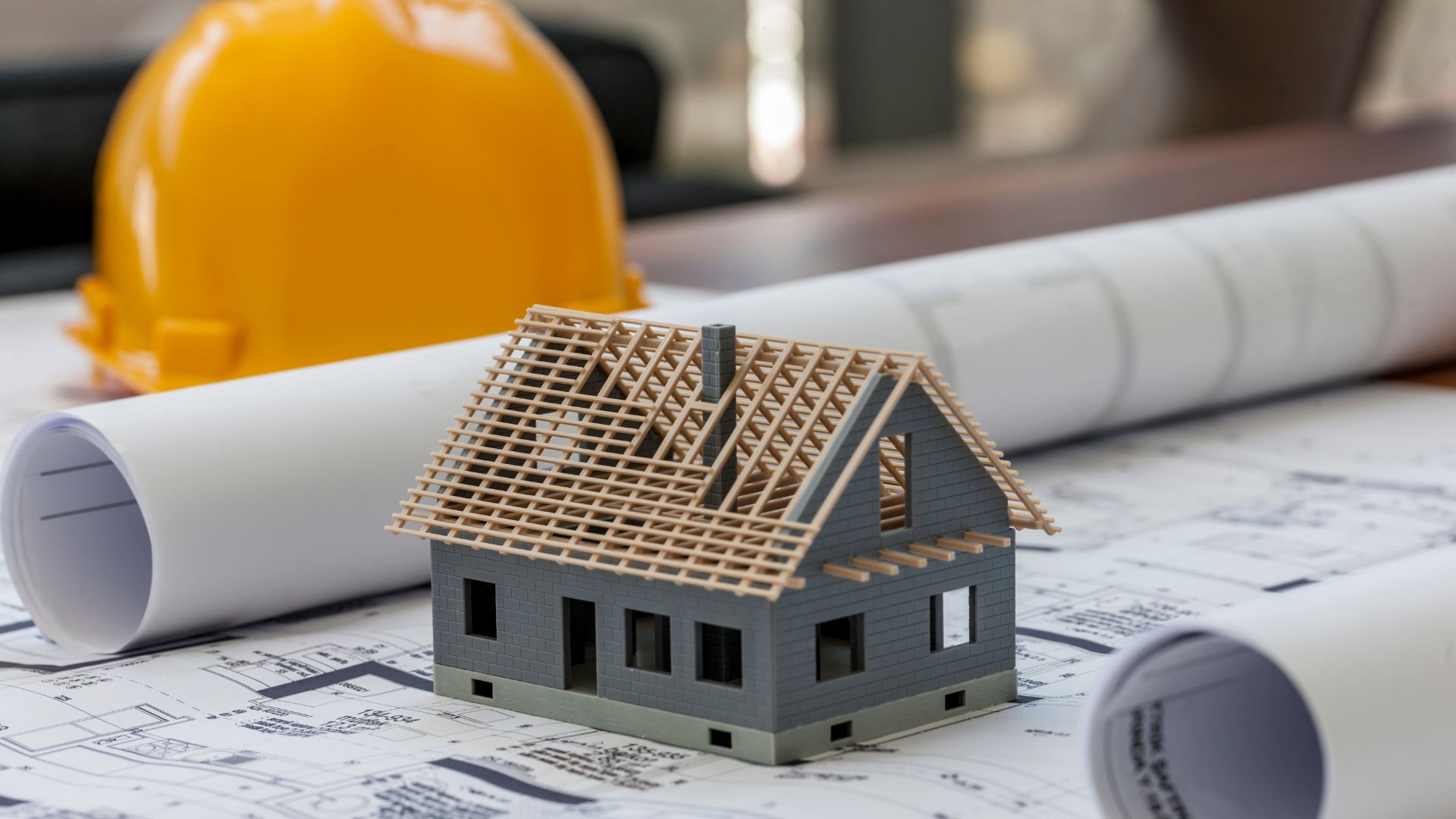Women in Construction Week: A Candid Conversation With a Female Crane Operator
08 Jan, 20251-2 minutes
In this blog, you will learn:
- Insights and challenges from a female crane operator working in the construction industry.
- About the role of women in construction and the unique perspectives they bring to the sector.
- How to empower women in the workplace.
- Where the latest construction jobs are and how to apply for them.
This Women in Construction Week (March 2 - 8, 2025), we’re shining a spotlight on the significant role women play in shaping the construction industry and building a more inclusive future. We had the privilege of speaking to Jacqueline Mars, the UK’s first black female Crane Operator.
Jacqueline is a NEBOSH (National Examination Board in Occupational Safety and Health) certified professional with over ten years experience in the construction industry. She is trained in operating overhead plants and is responsible for ensuring compliance and the safety of people, plants and property.
Jacqueline is also a mentor, guest speaker and advocate who champions the unique skills and perspectives women bring to the construction sector to make it a more efficient and inclusive environment.
Throughout this exclusive interview, you’ll discover insights into the life of a female Crane Operator and how to empower women during Women in Construction Week.
Can you tell me about your journey in the construction sector?
I started in the construction industry after several years of working as a civil servant safeguarding children in Child Protection. I was introduced to the construction industry and Tower Crane specifically as a very profitable industry.
The role itself is spent predominantly on one's own in a cabin, so encounters and interactions are limited to only a few, except when entering and leaving the site, or exiting the cab for breaks.
What does your role in the construction sector entail?
As a Crane Operator, health and safety plays a major part in my day-to-day role. At any point in the day I may be requested to lift items and move them anywhere around the site. Items typically weigh from one to ten tonnes.
Every lift is dangerous, and it always requires skill and concentration. Entering and exiting the crane also carries a lot of risk, and respect must be given to all Health and Safety training especially regarding mounting, operating and dismounting the crane.
Describe your experience as a woman in the construction sector
My experience after training was very hard. I was certified to work, but I was inexperienced, and found it extremely difficult to obtain work due to my lack of experience. When I finally started to work, I was frequently stared at and made to feel as if I was in the wrong place.
Entering a site on my first day, I recall being asked by one of the men if I was the cleaner. When I revealed that I was, in fact, the Crane Operator, the shock on his face was priceless.
On another occasion whilst at an induction session I was waiting to sign the necessary Health and Safety forms with my male assessor and another man in the room. I heard the administrator in charge outside the room ask ‘has anyone seen the Crane Operator?’ He was informed that the operator was in the induction room awaiting his presence.
The administrator came in and immediately looked at the first man in the room and assumed he was the one in charge. When he shook his head to decline the role, the administrator looked to the only other man in the room, my assessor. My assessor shook his head and pointed to me; at no point did it even occur to the administrator that a woman could be the Crane Operator.
It’s Women in Construction Week in March, what unique values and perspectives do women bring to the construction sector?
From experience, I know that women bring a different element and atmosphere to the construction industry. After the initial shock of actually encountering a woman onsite, some men change their tone of voice to account for the fact that a woman is present and listening to their conversation. Men in construction provide help and support to women, and their respectful behavior fosters positive conversations and boosts morale.
I think that productivity onsite also changes as men work differently knowing that women are watching and the culture softens to embrace the presence of a woman. A safer working environment is also enhanced as men consider the consequences of their actions on the women sharing the same space as them.
According to a report from the Office for National Statistics, in the first quarter of 2024, the gender ratio of women in construction careers fell to 13.6%, the lowest since the pandemic. How do you feel about the representation of women in male-dominated industries?
The representation of women in the construction sector is sadly not fair at all. I believe it's about offering mentorship and training and that an increase in support for women already in the field can be one way to push forward a positive message about the industry.
I was blessed to have a close male friend to help me through the process of navigating a man's world. He helped me understand what was worth addressing and what to let go, what truly mattered and what didn’t. He also taught me that being fired wasn't the end of the world and did not solely reflect my skills or ability. All of this information women need to know prior to commencing work - it helps with self-confidence and knowing how the industry works.
Why is it important to recognise and empower women in construction?
I’ve noticed that upon informing other women of my role in the construction industry I’ve been overcome with a sense of pride that women are inspired to enquire about which building networks to support, raise awareness and create safe spaces for other women to thrive socially and financially.
I am currently setting up a business with three key objectives. First, to raise awareness to the fact that the construction industry is a place for women. Second, to provide resources, guidance and mentorship to women interested in the industry. Third, to support women who have the necessary certificates and qualifications by addressing critical questions such as who will provide on-the-job training, and who will prepare them for the workplace culture and environment.
What challenges or obstacles have you faced in your career as a woman in construction, and how did you overcome them?
Honestly, at first, it's the look of disbelief regarding the work I do, which I overcame by being the very best at my job. I left no room for judgement, I trained, paid attention to the Health and Safety rules and applied them as necessary. I knew prior to working in the construction sector that I would be judged based on my colour and sex. I arrived on site as an asset, they just didn't know it yet.
How can we attract more women to the construction industry?
I believe interest in the construction sector and opportunities for women can begin at school. What is currently being said in schools, colleges, and universities regarding women in the construction industry, is it that it is still a place for men? It should include young girls and women.
If there is effective advertising promoting women in the construction industry, young girls and women can begin to see themselves in the pictures of the women being advertised. Women in the industry love to see more people that look like them. It’s worth thinking about whether women are being encouraged to speak on their journey into the construction industry, and if they are being supported to generate the necessary finances to prepare workshops tailored to women.
Another way to attract more women to the construction industry - which is dear to my heart and something I have already started to do - is to speak to organisations to support women coming from the training field to site.
What do you think about the increasing presence of women in construction roles?
I think visibility makes it easier for others to recognise that there is a place for women in construction roles. Mentorship helps women to challenge what a typical leader should look like, and lose the workplace biases such as the misconception that a woman may not be right for the industry because it may be physically challenging.
I have met a few women who have told me that they change their behaviour when they are onsite because they believe they must be masculine to be heard and mimic the dominant workforce. The increased presence of women will also help those already in the industry to feel that they can perform to the best of their abilities without prejudice or ridicule.
What can be done to ensure equality in the workplace especially in male-dominated industries such as construction, infrastructure, engineering etc?
I believe at the hiring stage the panel members should be diverse to allow for less bias at the interview stage. Those already in the industry who make decisions based on their workforce should also be trained and tested to identify if their biases are being challenged and addressed. I think there should be workshops for all, no matter their position in the organisation and women should be paid equally for doing the same job as a man. Also, something as simple as purchasing personal protective equipment (PPE) that is gender specific can foster a sense of inclusion.
What would your advice be to any women considering joining the construction workforce?
I would be delighted to advise them to take the chance and just be the women they truly are. Their presence alone can change the whole environment. Once they've received the necessary training and mentorship, just be the women that they want to see and make others proud.
What change would you like to see for young girls in the next generation?
I know that I am not as daring as some men I know, or even some of my female friends and that I personally need to know exactly what needs to be done and how. This can be interpreted as a lack of confidence at times, but I would like there to be a place where women can go, to build resilience and confidence in an area lacking familiarity.
When we are confident in what we do our voices can be heard, our ambition can be seen and our skills can showcase our talent.
Construction jobs
If you’re searching for your next construction job, why not take a look at the latest vacancies, or upload your CV to be notified when a relevant position becomes available.
Construction recruitment services
With years of construction recruitment experience, we support local authorities and private sector organisations all over the UK with their temporary, interim and permanent recruitment needs.
If you’re struggling to fill a vacancy, why not give us a call on 01772 954200 to see how we can support you?
Share your experience
Every individual brings a unique set of experiences, thoughts, and insights to the table. We believe in giving a voice to a community of professionals to inspire positive change and champion reform in the construction sector.
If you work in the construction sector and would like to share your own personal and professional experiences, we’d love to hear from you. Perhaps you have a different perspective, could offer a fresh angle, or want to challenge assumptions.
Simply reach out to our Head of Content, Nicole Sherwood, to discuss a collaboration which makes your voice count.
Who is Spencer Clarke Group?
Established in 2017, we’re a vibrant and progressive recruitment agency based in the heart of the North West.
We continually reimagine the recruitment process to challenge convention and defy expectations; from creating a better recruitment experience to remodelling employee engagement, we thrive off doing things differently and turning heads along the way.
We operate in two sectors:
In eleven specialisms:
Healthcare, Social Care & Nursing
Corporate Functions & Business Support



